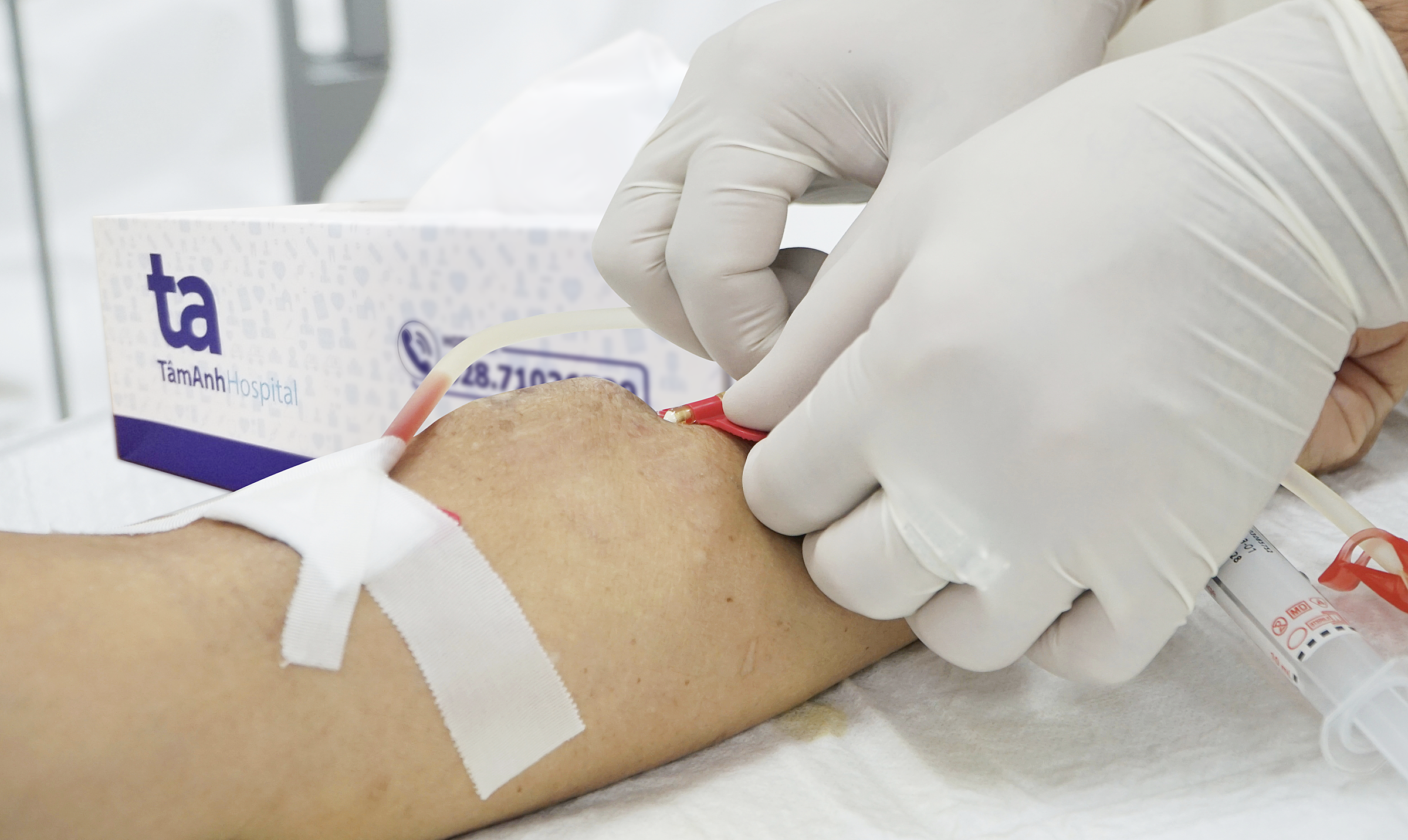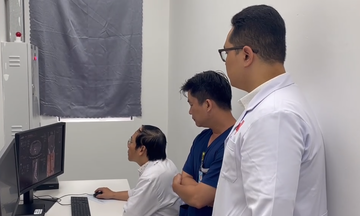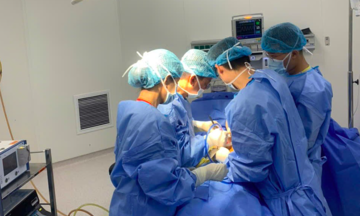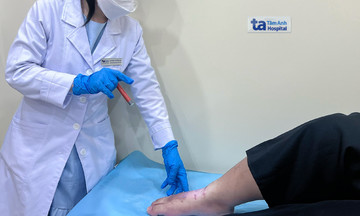Mr. An arrived at Tam Anh General Hospital in Ho Chi Minh City in a weakened state. His glomerular filtration rate was 7 ml/min/1.73m2, indicating end-stage renal disease. He also suffered from severe anemia, with a hemoglobin (Hb) level below 7 g/dL, leaving him extremely frail.
"The patient's kidney function was severely compromised," said Dr. Ta Phuong Dung, Deputy Director of the Center for Urology - Nephrology - Andrology and Head of the Nephrology - Dialysis Department. She added that dialysis is typically required in such cases to sustain life.
Emergency dialysis would have required placing a central venous catheter. However, this procedure carries a high risk of complications, especially for Mr. An, due to the high levels of toxins in his body and severe anemia, increasing his risk of bleeding during the procedure. The doctors decided to prolong medical treatment and postpone dialysis.
 |
Dr. Dung encourages a patient undergoing treatment at the Nephrology - Dialysis Department. Illustrative photo: Tam Anh General Hospital. |
Initially, the doctors aimed to extend his inpatient treatment to allow enough time for arteriovenous fistula (AVF) surgery, typically six weeks, to prepare him for regular dialysis. The hospital also arranged a separate dialysis room for HIV patients to ensure safety and prevent transmission. Thanks to leukocyte-depleted blood transfusions, Mr. An's kidney function gradually recovered beyond expectations.
Over the past eight months, Dr. Dung developed a kidney-preserving treatment plan for Mr. An, combining antiviral medication, blood pressure management, and proteinuria control. He responded well to the treatment. After seven weeks, his glomerular filtration rate increased to 15 ml/min/1.73m2, allowing him to avoid dialysis. At his most recent follow-up appointment, his filtration rate had risen to 17 ml/min/1.73m2, improving his kidney condition to stage 4.
Mr. An adhered to a healthy diet, refrained from discontinuing prescribed medications or using unverified herbal remedies, and diligently followed the treatment plan. During periods of poor health, marked by loss of appetite and nausea, he consumed smaller, more frequent liquid meals. He also used separate personal items and laundered his clothes separately to prevent transmission.
 |
A doctor performs dialysis on an HIV patient. Illustrative photo: Tam Anh General Hospital. |
Dr. Dung explained that HIV can increase the risk of kidney disease by damaging nephrons (the filtering units) in the kidneys, reducing filtration efficiency, or directly invading kidney cells. This risk is further elevated if the patient has a high viral load, a low immune cell count, co-existing conditions like diabetes, high blood pressure, or hepatitis C, or prolonged use of nephrotoxic medications such as non-steroidal anti-inflammatory drugs (NSAIDs) and other pain relievers.
She emphasized that early-stage kidney disease often presents no symptoms. Therefore, individuals with HIV should undergo regular kidney function tests and monitor their kidney-related indicators. They should also regularly check and maintain stable blood pressure, adhere to prescribed HIV medications, and manage blood sugar levels if necessary.
"Many HIV patients self-medicate with herbal remedies of unknown origin and are admitted to the hospital in critical condition," said Dr. Dung. She strongly advised patients to strictly follow their doctor's prescriptions and avoid using unverified medications to prevent kidney damage.
Ha Thanh
*The patient's name has been changed.
| Readers can submit questions about kidney disease here for doctors to answer. |












